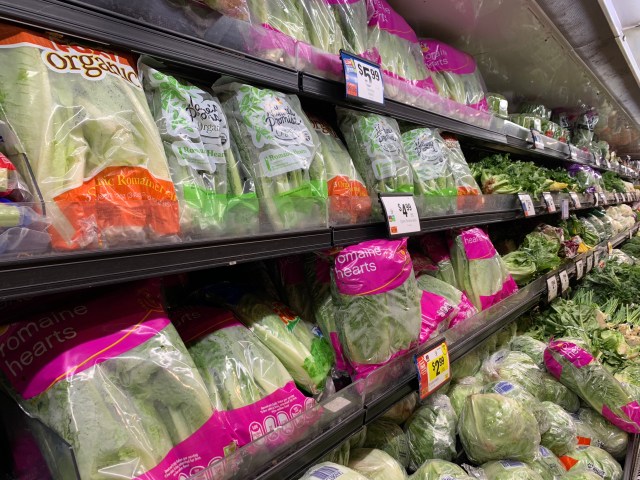After last week’s major recall on romaine lettuce, plenty of us have been wondering, “Is romaine lettuce safe to eat?” As it turns out, yes—but only under very limited circumstances, as noted by the U.S. Centers for Disease Control and Prevention and the Food and Drug Administration.
Following an E. coli outbreak that was linked to contaminated romaine, the CDC and FDA cautioned everyone to stay away from the popular leafy green. So if the lettuce shelves at your local grocer look bare, that’s why. You may have also noticed that any restaurant—from the finest foodie establishments to fast food chains—carrying salads, sandwiches or other romaine-containing products put a hold on selling those lettuce-centric items.
Photo: Keiko Zoll
Following the Nov. 20 update, 11 more cases of romaine-related E. coli were reported. This includes 43 cases across 12 state. Without a specific source, the CDC and FDA had n choice but to tell everyone to avoid all romaine. But now their investigation has narrowed down the contamination to lettuce from northern and central California.
Even though these agencies now have a general idea as to where the romaine originated, they are yet to find a precise grower or distributor. According to the CDC’s website, “If you do not know where the romaine is from, do not eat it.”
#OUTBREAK UPDATE – Preliminary traceback info indicates E. Coli illnesses are likely linked to #romaine lettuce grown in California this fall. Total illnesses – 43, hospitalizations – 16, deaths – 0 in 12 states. For up-to-date, detailed info >> https://t.co/vyKkwprO0D pic.twitter.com/bM9Q80SH0y
— FDA FOOD (Ctr for Food Safety & Applied Nutrition) (@FDAfood) November 27, 2018
Some romaine is currently labeled with the harvest growing region, but this doesn’t apply to all romaine or products containing romaine. If you can’t find a label, there is no label or the label indicates that the lettuce is from the Central Coastal growing region of California, do NOT eat it.
The CDC and FDA’s current announcement that some lettuce is safe to eat does not apply to all romaine. Caution is absolutely necessary until the investigation pinpoints the exact source of the E. coli contamination.
—Erica Loop
RELATED STORIES:
CDC Issues Massive Recall: Seriously, Stop Eating Romaine Lettuce
Recall Alert: Nearly 100,000 Pounds of Ground Beef Recalled for E. Coli
FYI: Don’t Let Your Babies Use Honey-Filled Pacifiers











